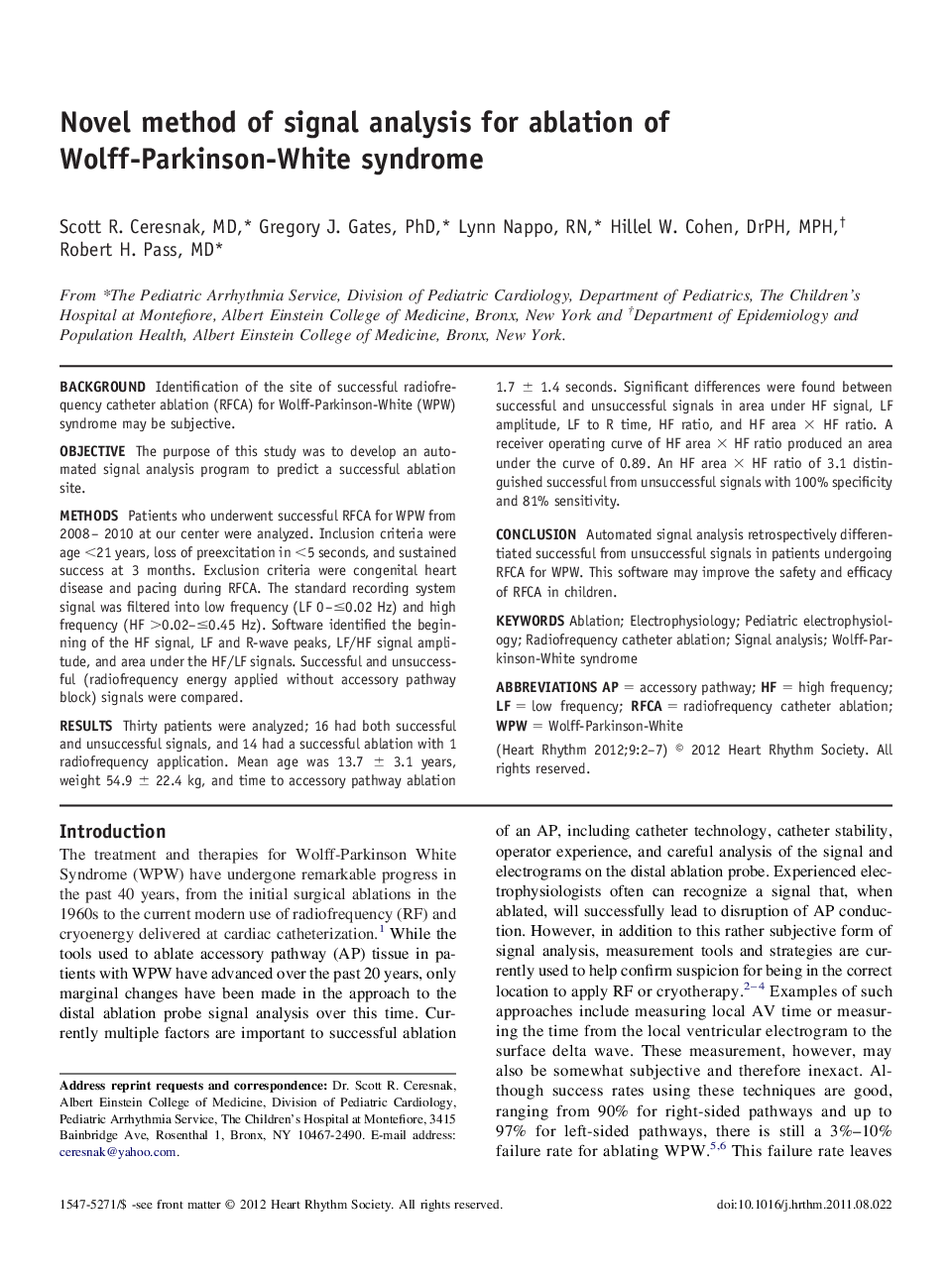| کد مقاله | کد نشریه | سال انتشار | مقاله انگلیسی | نسخه تمام متن |
|---|---|---|---|---|
| 2922844 | 1175857 | 2012 | 6 صفحه PDF | دانلود رایگان |

BackgroundIdentification of the site of successful radiofrequency catheter ablation (RFCA) for Wolff-Parkinson-White (WPW) syndrome may be subjective.ObjectiveThe purpose of this study was to develop an automated signal analysis program to predict a successful ablation site.MethodsPatients who underwent successful RFCA for WPW from 2008– 2010 at our center were analyzed. Inclusion criteria were age <21 years, loss of preexcitation in <5 seconds, and sustained success at 3 months. Exclusion criteria were congenital heart disease and pacing during RFCA. The standard recording system signal was filtered into low frequency (LF 0–≤0.02 Hz) and high frequency (HF >0.02–≤0.45 Hz). Software identified the beginning of the HF signal, LF and R-wave peaks, LF/HF signal amplitude, and area under the HF/LF signals. Successful and unsuccessful (radiofrequency energy applied without accessory pathway block) signals were compared.ResultsThirty patients were analyzed; 16 had both successful and unsuccessful signals, and 14 had a successful ablation with 1 radiofrequency application. Mean age was 13.7 ± 3.1 years, weight 54.9 ± 22.4 kg, and time to accessory pathway ablation 1.7 ± 1.4 seconds. Significant differences were found between successful and unsuccessful signals in area under HF signal, LF amplitude, LF to R time, HF ratio, and HF area × HF ratio. A receiver operating curve of HF area × HF ratio produced an area under the curve of 0.89. An HF area × HF ratio of 3.1 distinguished successful from unsuccessful signals with 100% specificity and 81% sensitivity.ConclusionAutomated signal analysis retrospectively differentiated successful from unsuccessful signals in patients undergoing RFCA for WPW. This software may improve the safety and efficacy of RFCA in children.
Journal: Heart Rhythm - Volume 9, Issue 1, January 2012, Pages 2–7